A small, fast, feisty and fun 2-door or berlinetta saloon – generally described as a coupe in contemporary fashion – the BMW M2 may be the most affordable and least powerful of the Bavarian maker’s skunkworks M Division, but for a certain type of diehard and old school devotee, it is by far the most desirable. Harking back to BMW’s iconic pre-M Division 2002 Turbo and original E30 generation M3 compact performance 2-doors, the M2 may not exactly be minimalist, but has a distinct and refreshing back-to-basic flavor, compared to larger, heavier and more powerful and expensive M Division stable-mates.
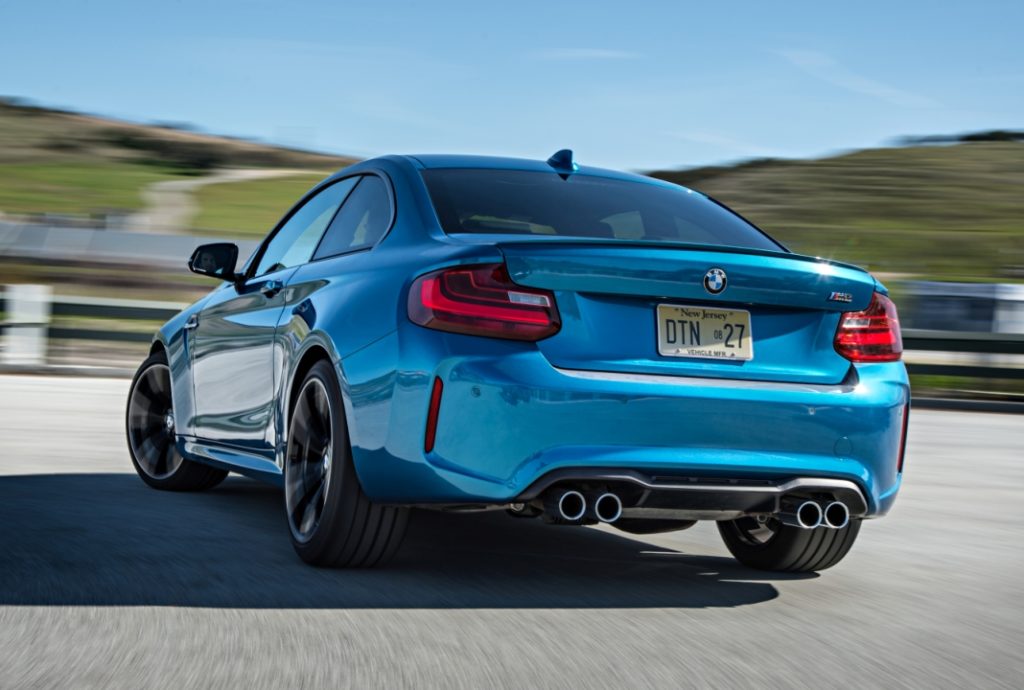 An antidote to bigger and more maturing M3, M4 and M5 models, the M2’s restrained size and mighty but not excessive output, derived from a straight-six engine powering the rear wheels, brings back a certain roguish fun factor that made the small, fast and shark-like Bimmers so appealing in years past. Measuring 4468mm and weighing in at 1595kg, the M2 is certainly bigger and heavier than predecessors but is restrained by contemporary standards, and rides massive staggered footwear, including 245/35ZR19 front tyres for more precise steering and fatter 265/35ZR19 rubber at the rear for outright traction and grip.
An antidote to bigger and more maturing M3, M4 and M5 models, the M2’s restrained size and mighty but not excessive output, derived from a straight-six engine powering the rear wheels, brings back a certain roguish fun factor that made the small, fast and shark-like Bimmers so appealing in years past. Measuring 4468mm and weighing in at 1595kg, the M2 is certainly bigger and heavier than predecessors but is restrained by contemporary standards, and rides massive staggered footwear, including 245/35ZR19 front tyres for more precise steering and fatter 265/35ZR19 rubber at the rear for outright traction and grip.
Aggressive, moody, dramatic and classically proportioned with long bonnet, short front overhang, rearwards cabin and pert boot, the M2 bears predecessors’ hallmarks and sits with an urgent yet road-hugging athleticism and features a low front apron, gaping intakes and dual exhaust pipes. Where it departs from the un-complicated yet evocatively designed 2002 Turbo and original M3 circa 1973 and 1986, is in its more complex lines, details and overtly muscular concave and convex surfacing. A contemporary car adhering to modern design preferences and constraints, the M2’s rising waistline is significantly higher while its glasshouse is much narrower.
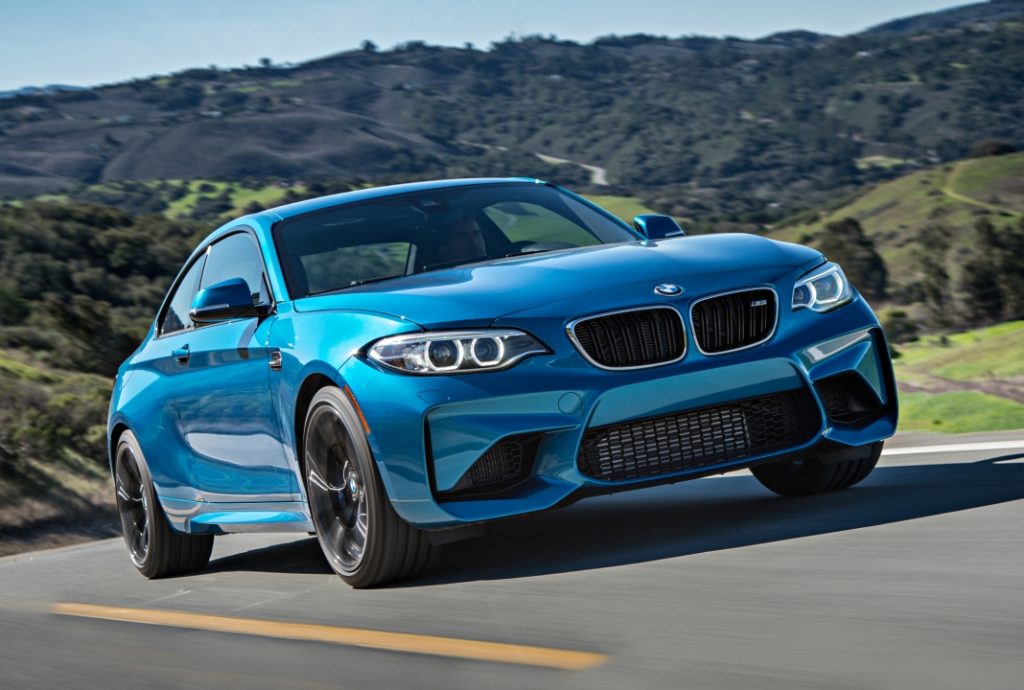 Effectively the successor to the well-received but short-lived 2011-12 BMW 1M Coupe, the M2 is a natural progression in design, character and driveline. Powered by a somewhat detuned direct injection single twin-scroll turbo version of the current M3’s 425BHP twin-turbo 3-litre in-line 6-cylinder engine to delineate its position in BMW’s hierarchy, the M2 is however a scintillatingly swift drive in its own right. With negligible turbo lag from tick-over and only a slight surge as revs pick up, the M2 engine drives with an almost naturally aspirated-like progression as it urgently builds power to a 365BHP maximum at a peaky 6500rpm.
Effectively the successor to the well-received but short-lived 2011-12 BMW 1M Coupe, the M2 is a natural progression in design, character and driveline. Powered by a somewhat detuned direct injection single twin-scroll turbo version of the current M3’s 425BHP twin-turbo 3-litre in-line 6-cylinder engine to delineate its position in BMW’s hierarchy, the M2 is however a scintillatingly swift drive in its own right. With negligible turbo lag from tick-over and only a slight surge as revs pick up, the M2 engine drives with an almost naturally aspirated-like progression as it urgently builds power to a 365BHP maximum at a peaky 6500rpm.
Savagely but smoothly willing, eager and long-leggedly consistent, the M2’s engine is nevertheless benefits from a broad, rich, muscular and highly exploitable mid-range torque band, peaking at 343lb/ft throughout 1400-5560rpm for effortless overtaking and inclines, as it underwrites power accumulation. Snarling as it coughs to life on ignition, the M2 settles into a reverberating faint bass at idling in ‘Sport’ mode. Happy to be wrung hard and past 7000rpm, its engine note hardens in pitch and transforms to an urgent wail. Gear changes are meanwhile quick, crisp and consistent courtesy of a 7-speed dual-clutch automated transmission. Smooth in default mode, the M2 does however like to hold gears slightly in traffic.
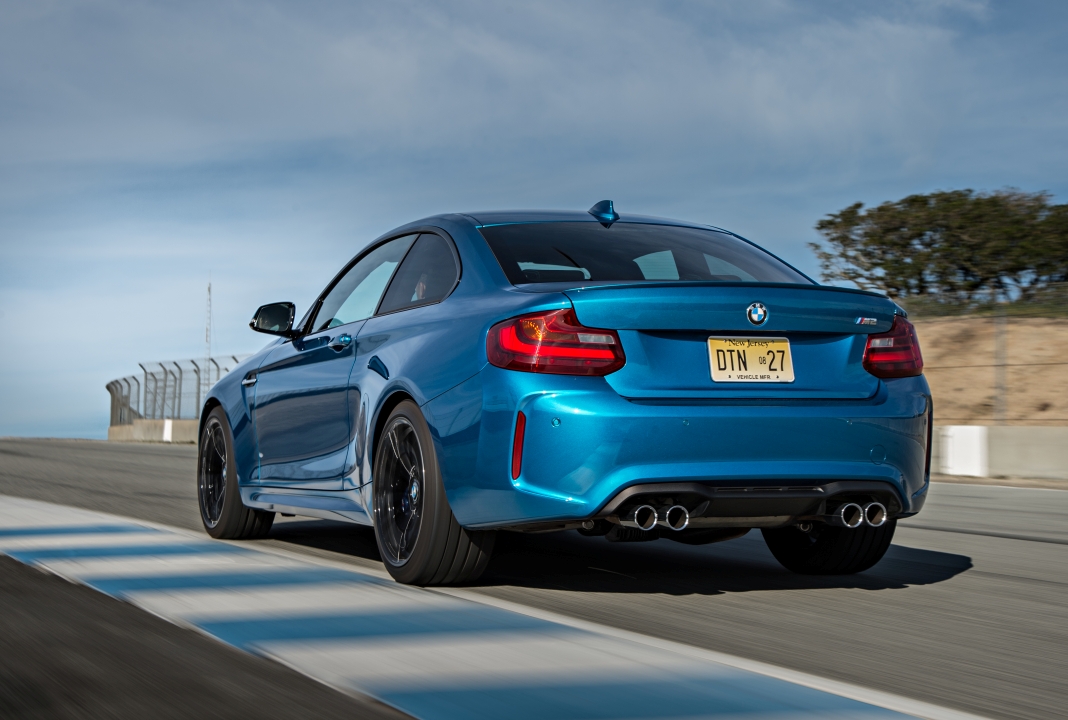 Eager, connected and balanced, the M2 rides on double wishbone front and rear multi-link suspension with distinctly sporty sophisticated fixed-rate springs and dampers. Firm yet smooth and with taut body control through corners, the M2 also remains tightly buttoned down and settled in pitch and rebound over crests and dips. High speed stability is unimpeachable stable and hunkered down, while brakes are capably strong and resilient to fade. Brake response is slightly jumpy in traffic, but pedal feel and travel becomes more natural, intuitive, linear and confident at speed and with firmer more intentioned driver inputs.
Eager, connected and balanced, the M2 rides on double wishbone front and rear multi-link suspension with distinctly sporty sophisticated fixed-rate springs and dampers. Firm yet smooth and with taut body control through corners, the M2 also remains tightly buttoned down and settled in pitch and rebound over crests and dips. High speed stability is unimpeachable stable and hunkered down, while brakes are capably strong and resilient to fade. Brake response is slightly jumpy in traffic, but pedal feel and travel becomes more natural, intuitive, linear and confident at speed and with firmer more intentioned driver inputs.
Eager, neutral handling and highly adjustable with classic front engine and rear drive set-up, the M2 turns crisp and tidy into corners with very little tendency for under-steer. Reassuring at speed, steering is a direct, quick and meaty precision instrument through corners, if not especially textured in feel. Thick rear tyres provide plenty of grip when leaned on but can kick out if provoked. Progressive and natural feeling at its grip limit in Sport+ mode with more relaxed – but nonetheless highly effective – electronic stability control setting, the M2’s more intrusive Sport mode’s more eager interventions give the impression of less rear mechanical grip than actually available.
 Quick, crisp and snappily succinct kick in Sport mode, the M2’s gearbox takes a more aggressive profile in Sport+ mode, with a deliberate kick and additional shove to initiate slight wheel-spin and kick the rear out slightly. Meanwhile, an electronically-controlled limited-slip rear differential distributes power to the wheel that can best put it down for improved agility and traction through corners. Incrementally sharper and more hard-edged, focused and direct in Sport and Sport+ modes, the M2’s default comfort mode is smoother, more fluent and only slightly dulled by comparison, and affects stability controls, steering, throttle and gearbox settings.
Quick, crisp and snappily succinct kick in Sport mode, the M2’s gearbox takes a more aggressive profile in Sport+ mode, with a deliberate kick and additional shove to initiate slight wheel-spin and kick the rear out slightly. Meanwhile, an electronically-controlled limited-slip rear differential distributes power to the wheel that can best put it down for improved agility and traction through corners. Incrementally sharper and more hard-edged, focused and direct in Sport and Sport+ modes, the M2’s default comfort mode is smoother, more fluent and only slightly dulled by comparison, and affects stability controls, steering, throttle and gearbox settings.
For best results and the most rewarding experience, the M2 responds best when smoothly and judiciously dialing in power, steering angle and brake pressure. Coming into its own on flats, straights and corners with comfortable run-off room – rather than narrow technical hill climbs – the M2 becomes engaging and alive, with slight slides becoming part of the fan and method of progress. Inside, the M2’s cabin is business-like with sporting touches including contrasting stitching and quality materials, fit, finish and equipment. With clear instrumentation and road visibility, alert, supportive and well adjustable – if slightly narrow – driving position, the M2 also features terrific front headroom with the absence of a sunroof, and usable, if not generous rear seats.
- Engine: 3-litre, turbocharged, in-line 6-cylinders
- Bore x stroke: 84 x 89.6mm
- Compression ratio: 10.2:1
- Valve-train: 24-valve, DOHC, variable timing, direct injection
- Gearbox: 7-speed automated dual-clutch
- Driveline: Rear-wheel-drive, electronically-controlled limited-slip differential
- Gear ratios: 1st 4.806; 2nd 2.593; 3rd 1.701; 4th 1.277; 5th 1.0; 6th 0.844; 7th 0.671
- Reverse / final drive ratios: 4.172 / 3.46
- Power, BHP (PS) [kW]: 365 (370) [272] @6500rpm
- Specific power: 122.5BHP/litre
- Power-to-weight: 122.5BHP/ton
- Torque, lb/ft (Nm): 343 (465) @1400-5560rpm*
- Specific torque: 156.1Nm/litre
- Torque-to-weight: 156Nm/ton
- 0-100km/h: 4.3-seconds
- Top speed: 250km/h
- Fuel economy, urban / extra-urban / combined: 10.5- / 6.4- / 7.9-litres/100km
- CO2 emissions, combined: 185g/km
- Fuel capacity: 52-litres
- Length: 4468mm
- Width: 1854mm
- Height: 1410mm
- Wheelbase: 2693mm
- Overhang, F/R: 807/968mm
- Track, F/R: 1579/1601mm
- Aerodynamic drag co-efficient: 0.35
- Headroom, F/R: 1018/927mm
- Boot capacity: 390-litres
- Unladen weight: 1595kg
- Suspension, F/R: Double wishbones / multi-link
- Steering: Electric-assisted rack & pinion
- Turning circle: 11.7-meters
- Brakes, F/R: 4-/2-piston calipers, ventilated discs
- Tyres, F/R: 245/35ZR19 / 265/35ZR19
- *369lb/ft on overboost


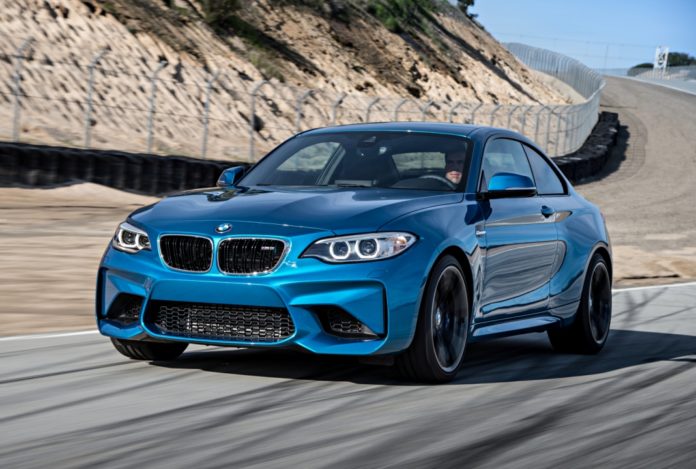



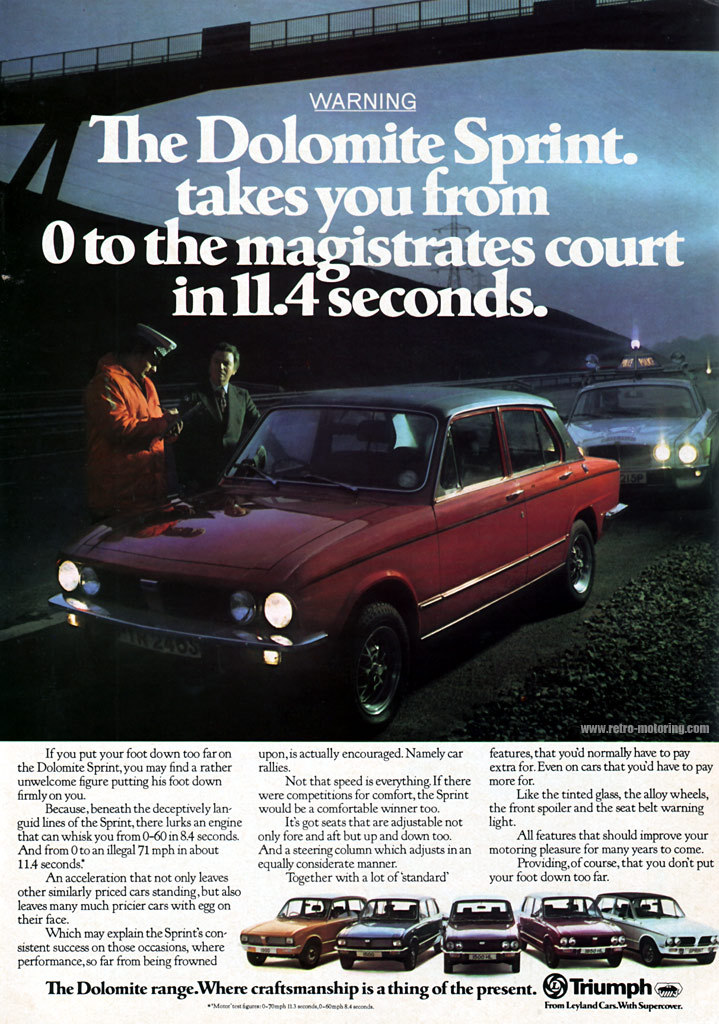
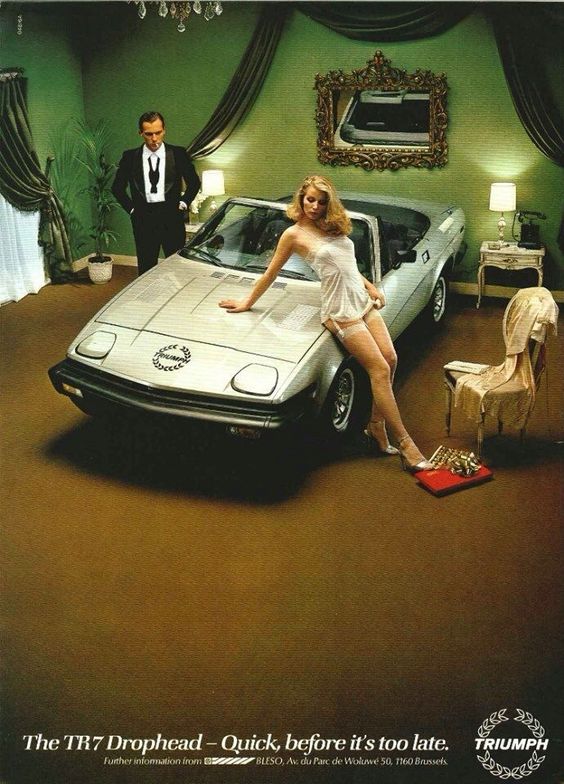
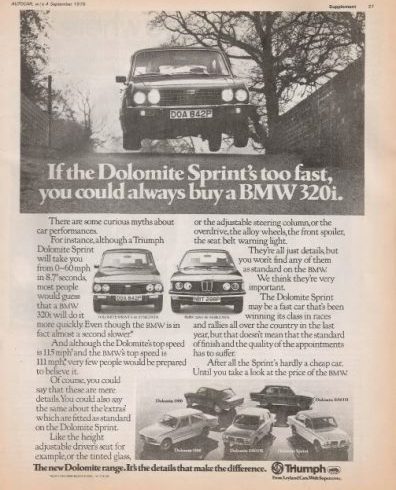
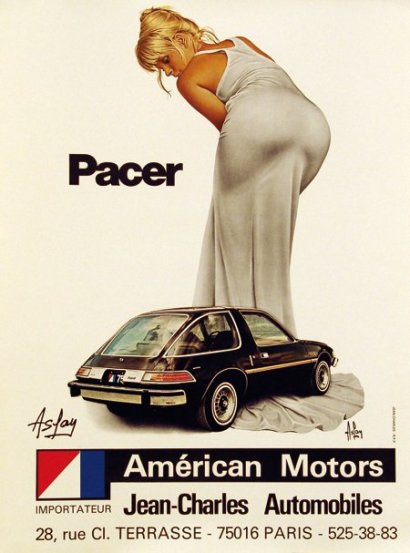




















Recent Comments